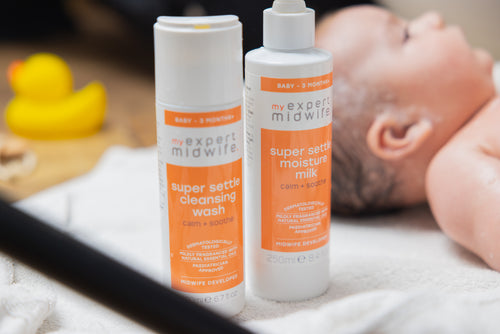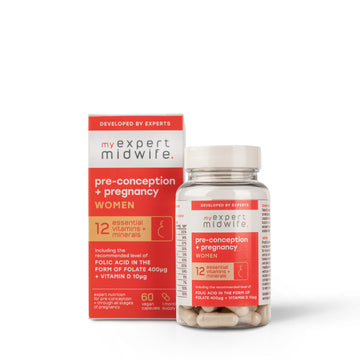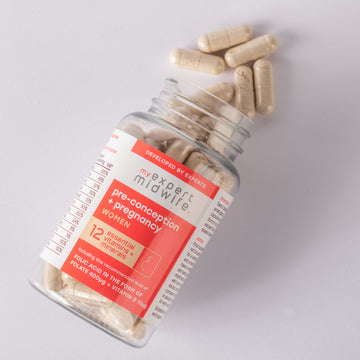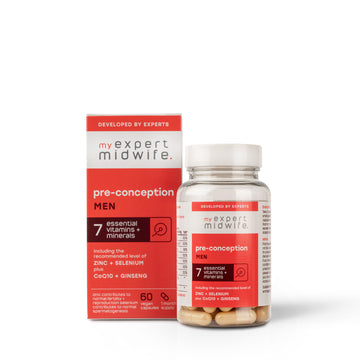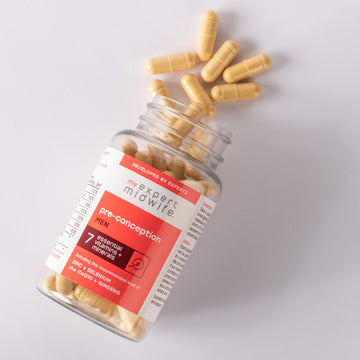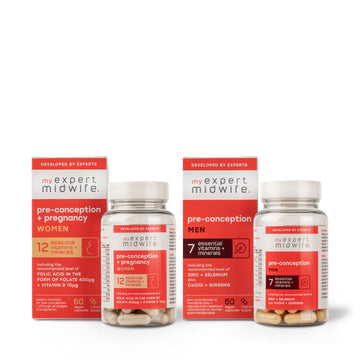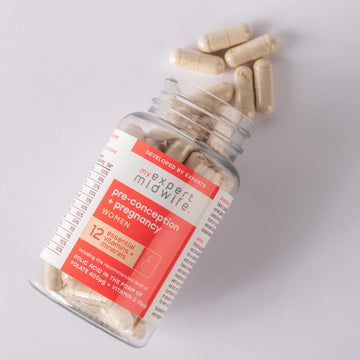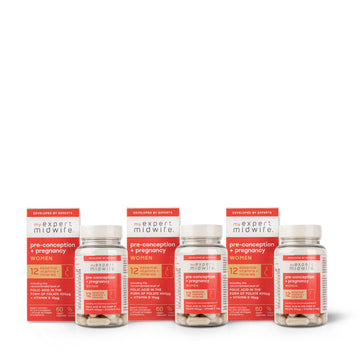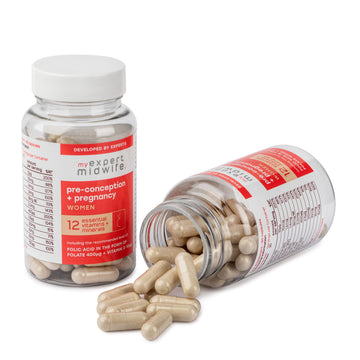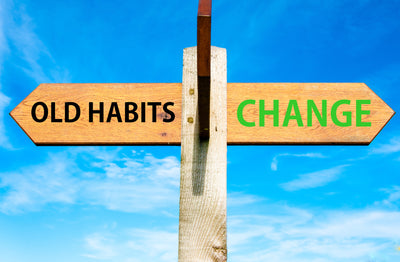While about half of pregnancies happen ‘by accident’, the other half happen when people actively try to conceive (TTC). Embarking on a conception journey is exciting but can also be nerve-wracking. One of the things we know improves your chances of the magic moment of egg-meeting-sperm and starting a new life is getting your health and well-being in the best possible place.
Understanding your menstrual cycle, stopping smoking, reducing alcohol intake, exercising regularly, having lots of sex, trying to reduce stress, maintaining a healthy weight and eating a well-balanced diet can all be valuable lifestyle alterations.
Here at My Expert Midwife, we have also created our not-for-profit Trying To Conceive Fertility + Ovulation Kit and a free and downloadable Guide to Trying to Conceive to support you in your journey to becoming pregnant.
An excellent way of improving your chances of conceiving is to take a good quality supplement for fertility that supports your overall health. When you start your journey, taking a fertility vitamin or supplement for at least 2 months before trying to conceive is ideal to ensure your body has the recommended levels of all the various vitamins and minerals necessary for your fertility and also for your and your baby’s optimal health.
The role of vitamins in fertility
Over many years of scientific research, the vitamins and minerals that improve fertility and overall health have been studied. We now know that ensuring the recommended daily allowance of specific elements can dramatically impact your chances of conceiving a healthy pregnancy. Taking a supplement with the right amounts of the micronutrients your body needs, alongside a nutritious diet, means that you are giving your conception journey a great start.
What happens if I am deficient in a vitamin while trying to conceive?
If you are worried about whether you may be deficient in a specific vitamin or mineral, the best first course of action is to head to your GP. They can order a blood test and other tests to check your reproductive and micronutrient health. Not having adequate levels of certain fertility-related micronutrients can mean lower chances of conception, less chance of the fertilised egg being healthy and implanting, and increased risks of miscarriage, pregnancy issues and birth defects. Alongside having a well-balanced diet and improving some lifestyle habits, the best way to improve your fertility and lower some of the above risks is to take a good quality supplement which complements and aids your fertility and reproductive health.
Fertility supplements to take when trying to get pregnant

You may be asking yourself, ‘what vitamins should I take when trying to get pregnant?’ These are the essential vitamins and minerals that specifically support pre-conception and why they are important:
Vitamin D3

Vitamin D, known as the sunshine vitamin, is essential to help get pregnant, but it is also vital during the pre-conception phase. We get vitamin D when the sun reacts with a chemical in our skin to produce it. Because many women, particularly those living in the northern hemisphere like in the UK and Ireland, do not have adequate sunlight throughout the year- many women do not get enough of this vital micronutrient, so vitamin D supplementation is recommended. Having sufficient vitamin D levels is linked to higher rates of pregnancy.
Thiamine B1
Thiamine, or vitamin B1, has been linked to egg cell health. A deficiency in vitamin B1 has been linked to higher rates of infertility and miscarriage.
Riboflavin B2
As part of the water-soluble B-group of vitamins, riboflavin (vitamin B2) aids the body in breaking down proteins and other nutrients and allowing our body to absorb them. Protein is essential in cells, including those involved in reproductive health. Absorbing the necessary amounts of protein is needed for good fertility.
Niacin B3
Vitamin B3 is a critical vitamin in nerve, skin and digestive health. Ensuring you have enough in your system can boost your fertility and reduce pregnancy risks of miscarriage and birth defects.
Vitamin B6
Vitamin B6 is another B group vitamin that keeps and maintains hormonal balance. It particularly influences female fertility, as it helps maintain the balance between oestrogen and progesterone - both critical for a healthy reproductive system.
Vitamin B12
In men, vitamin B12 is essential for sperm count, quality and motility and for protecting against DNA damage. Vitamin B12 is just as crucial for women’s health, in particular when they are trying to get pregnant. Vitamin B12 deficiency is more common in females and is linked with subfertility (reduced fertility) and issues with reproductive health.
Vitamin C
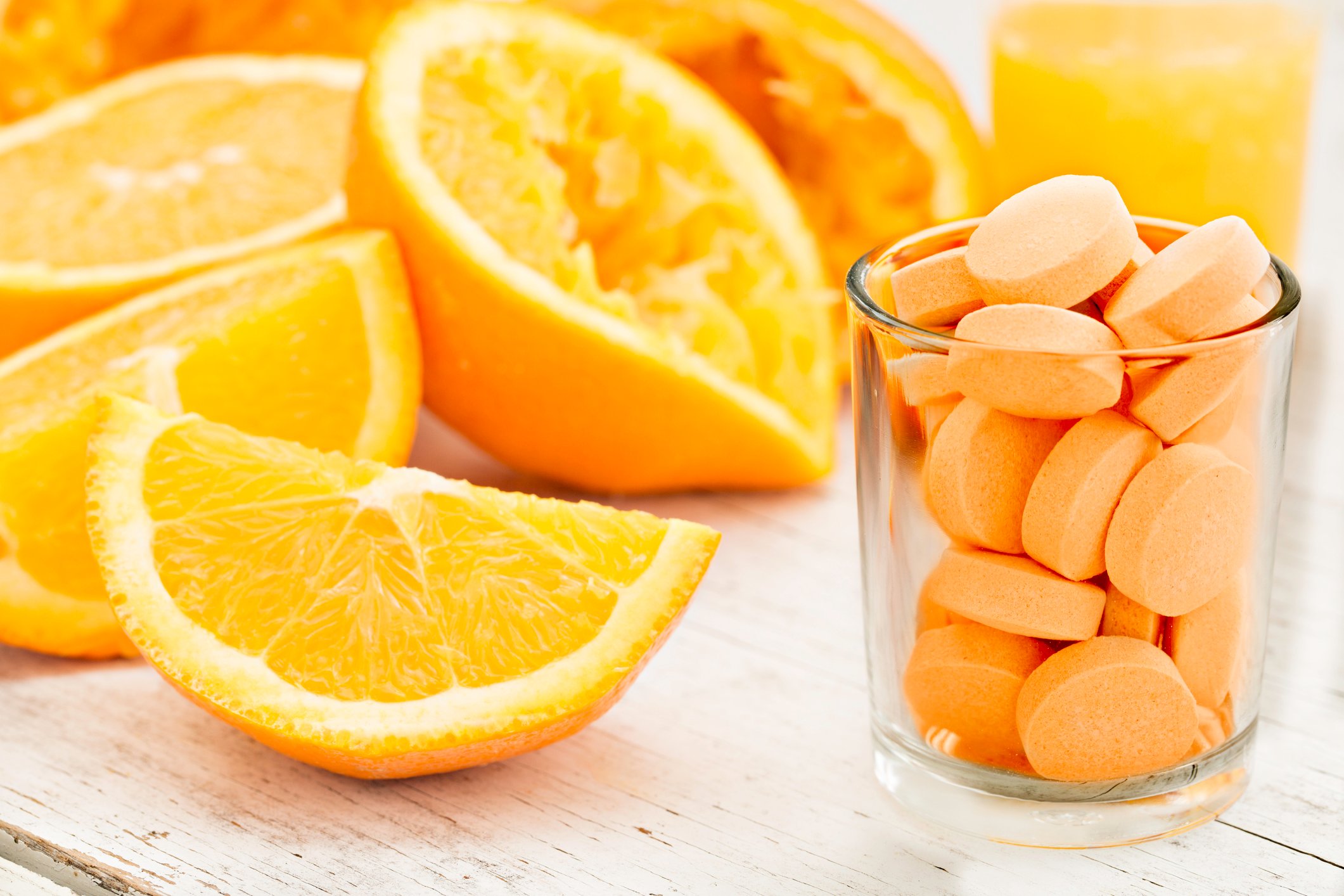
Vitamin C is an important antioxidant. It helps to improve hormone levels, and studies have shown that it aids in regulating menstruation and normal ovulation. Because you cannot store it in the body, you must take a daily dose. An easy way to do this is via a good quality supplement.
Folic Acid
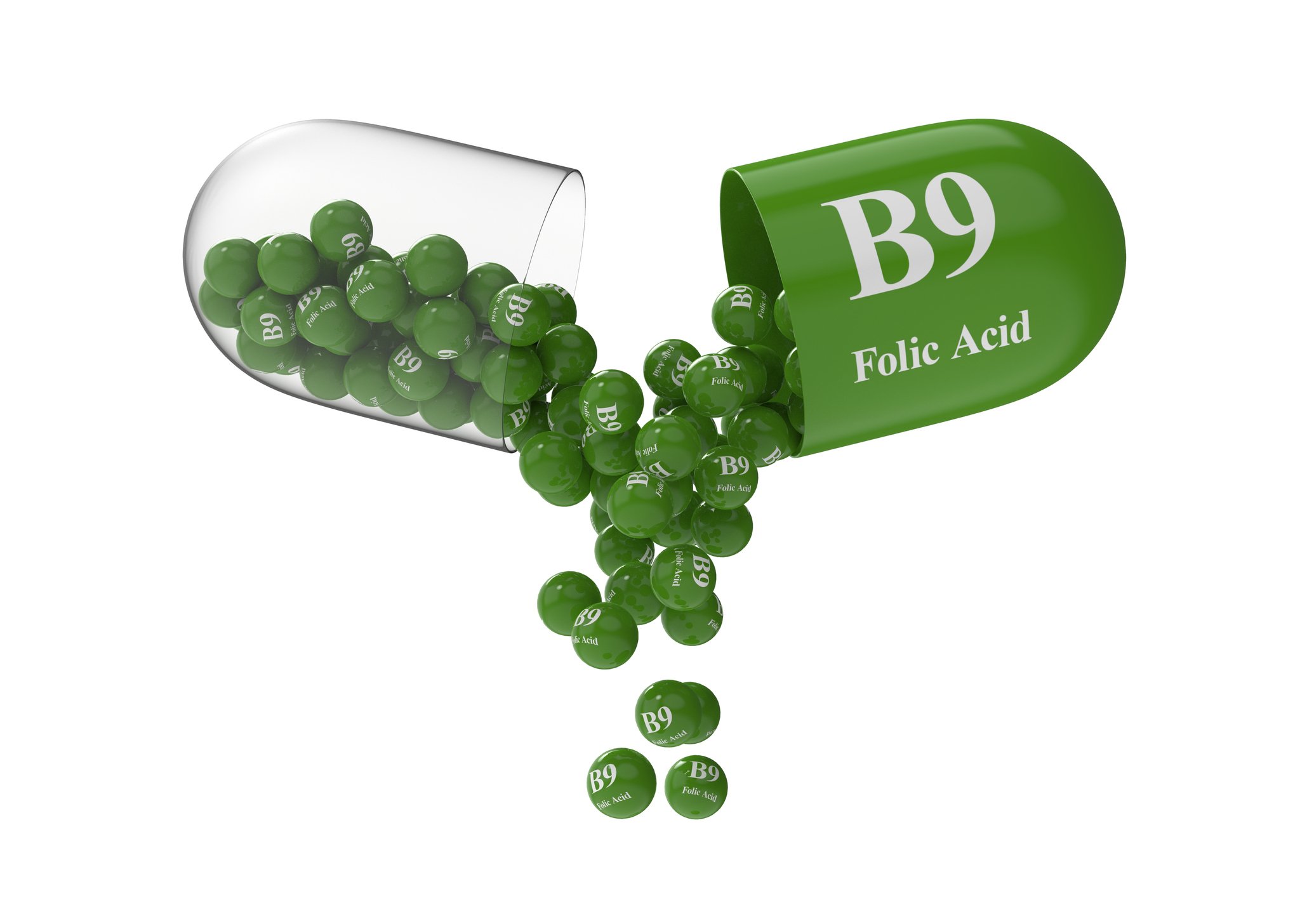
Folic acid is the synthetic form of Vitamin B9 or folate. Multiple studies have shown it to be vital for reproductive cell health and significantly reduces the risk of a baby having neural tube defects, such as spina bifida.
Your baby’s neural tube is formed during the first 12 weeks of pregnancy. It is, therefore, important to supplement with folate/folic acid before you start trying to conceive, as opposed to when you find out you are pregnant so that you can achieve optimal levels of this essential vitamin and reduce the risk of neural tube defects in your baby. Importantly, recent scientific research has confirmed that many of us have difficulty metabolising folic acid, the synthetic form of folate, and suggests that its natural state, methyl folate, may have far greater absorption. We, therefore, recommend taking a supplement containing methyl folate rather than folic acid.
Calcium
‘Them bones need calcium, but so does your reproductive system! Alongside vitamin D, which helps absorb it, it is thought that Calcium helps the oocytes (eggs) to mature and increases the chance of conception happening - when a healthy sperm meets a healthy egg.
Iron
Iron plays a significant role in oxygen transportation and metabolism. It is also the most common micronutrient deficiency in the world, affecting approximately 25-40% of childbearing women, which is why iron supplements can be necessary. Good iron stores prepare the body in the pre-pregnant phase for the demands that occur once pregnancy has occurred. Having adequate iron levels is associated with higher levels of pregnancy and healthy conception.
Zinc
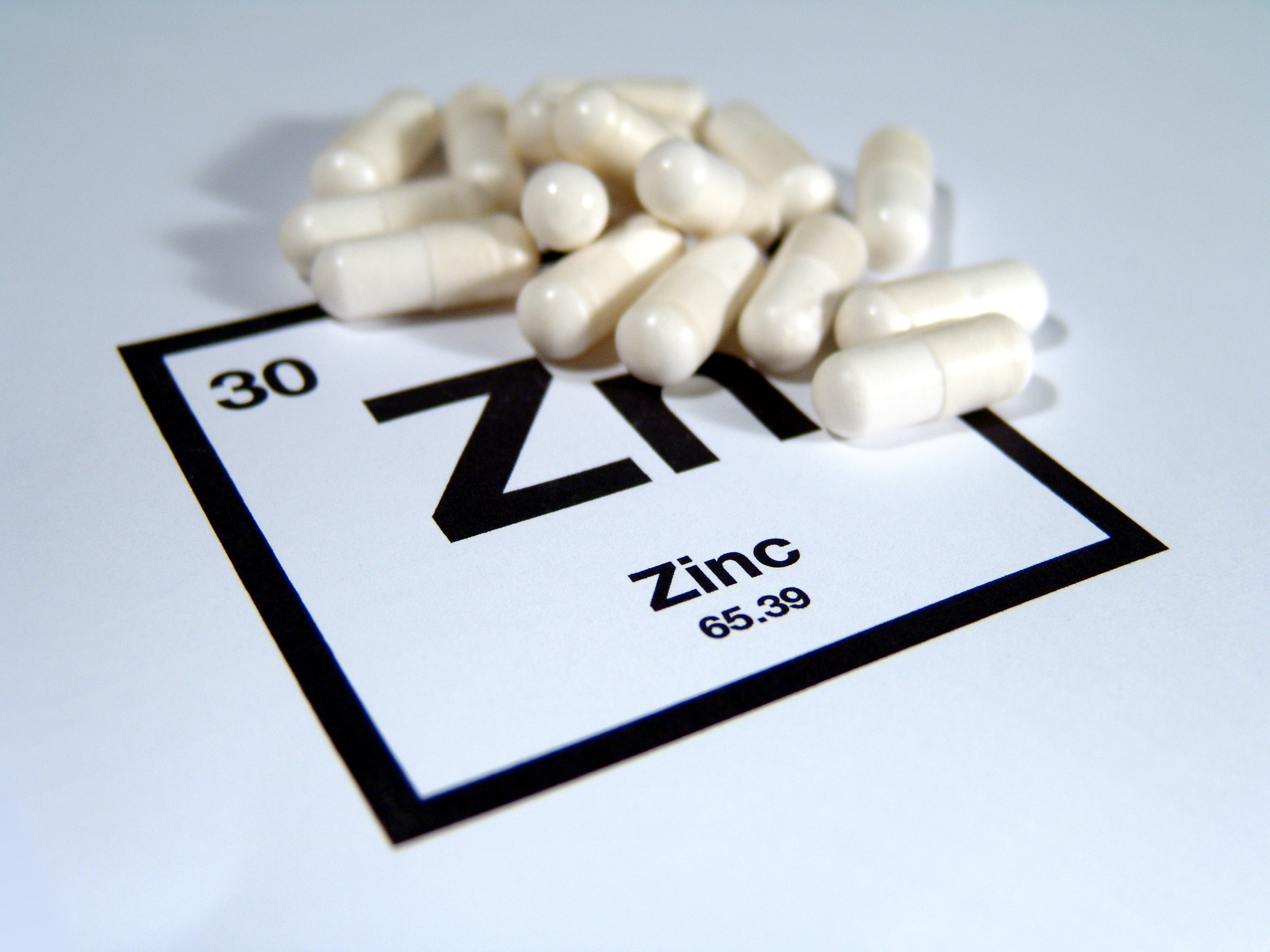 Zinc is essential pre-conceptively for healthy eggs. Ensuring you have enough zinc while trying to get pregnant means there is enough of this crucial mineral to aid an egg to mature correctly, so it is at the right stage to fertilise. It is also key in ensuring a reaction when one sperm fertilises the egg so that more sperm don’t get through the membrane - this is called the ‘zinc spark’.
Zinc is essential pre-conceptively for healthy eggs. Ensuring you have enough zinc while trying to get pregnant means there is enough of this crucial mineral to aid an egg to mature correctly, so it is at the right stage to fertilise. It is also key in ensuring a reaction when one sperm fertilises the egg so that more sperm don’t get through the membrane - this is called the ‘zinc spark’.
Iodine
Iodine is an essential mineral for a healthy pre-conceptual phase, for getting pregnant and ensuring a healthy pregnancy. It has a critical function in helping thyroid metabolism, which, in turn, helps regulate ovulation and weight management, all important factors in increasing the likelihood of pregnancy.
Risks of taking fertility vitamins
As with all things, too much of something can have adverse side effects, and prenatal vitamins and minerals are no different. Always follow the advice on the label and never take more than the dose advised. Also, chat with your doctor or midwife if you have any concerns.
Fertility supplements for men

Conception and preconception health is not just about the woman or pregnant person. Half of the 1 in 6 couples facing fertility issues relate to male fertility problems, such as the quality of the sperm or sperm count. Both partners must undertake positive lifestyle, well-being and health choices, including taking the right fertility supplements for men, to support fertility.
Do fertility supplements work
The simple answer is yes. Fertility supplements for women and men can be beneficial for improving the chances of conception. Through multiple clinical trials, research, and scientific advances, we know that ensuring that the human female body has enough of the essential micronutrients increases the chances of getting pregnant. Taking control over your pre-conceptual health and reproductive well-being means you have a statistically better chance of conceiving in a shorter period. However, it is important to note that not all supplements are created equally.
At My Expert Midwife, we have some great downloadable resources and a not-for-profit TTC kit. We want you to know that we have you covered when supporting you and your body during that exciting but nerve-wracking time when trying to conceive. And once you see that magic line on your pregnancy test, we have lots more information on having a healthy pregnancy.
